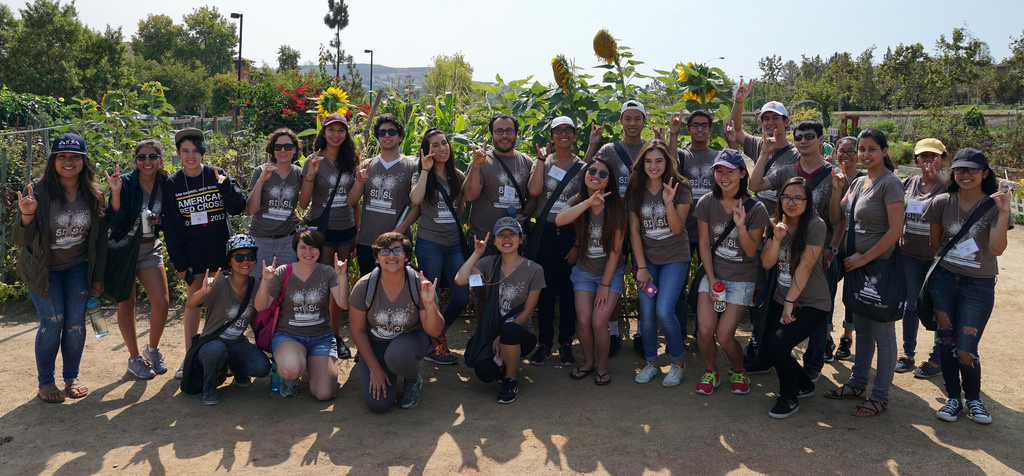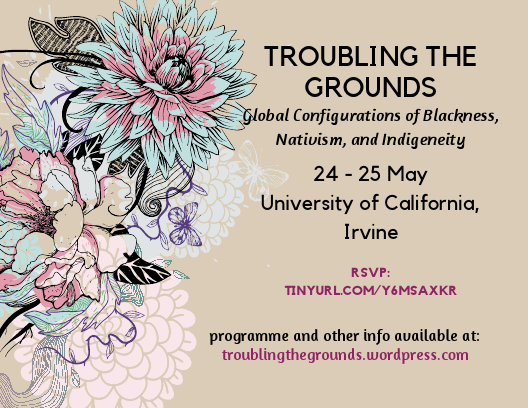Troubling the Grounds: Global Configurations of Blackness, Nativism, and Indigeneity
The resurgence of ultranationalist calls to greatness claim a form of sovereignty based on a nostalgic act of “return.” For example, Donald Trump’s presidential campaign to “Make America Great Again,” Bolsonaro’s “Make Brazil Great Again,” and Matteo Salvini’s “Make Italy Great Again” and “Italians First” share a desire to recuperate an originary colonial and nationalist project. This discourse gives way to anti-immigrant, anti-Black, and anti-Indigenous movements in great part because they promote a revisionist history which celebrates white cisheterosexual people as the rightful claimants to the land and therefore to the status of “native.” “Nativism” in this context refers to a return to whiteness, and thus, a return that renders impossible any other claims to sovereignty in favor of white ethnonationalist politics of recognition and fantasies of belonging.
Troubling the Grounds: Global Configurations of Blackness, Nativism & Indigeneity, begins on the basis that indigeneity, diaspora, and migration are racial-ethno-political categories emerging differently across geopolitical contexts. In Europe, for example, the Sámi people inhabiting parts of what is now Scandinavia are readily classified as Indigenous to those lands, whereas the Romani (including Roma and Sinti peoples) are often conflated as nomadic tribes. Rather than being recognized as Indigenous, these groups often experience racialization and a process of what Alyosxa Tudor calls “migratisation.” Likewise, “indigeneity,” as a political identity is not taken up evenly throughout the continent of Africa, Central America and various other regions, despite various peoples’ historic claims to tribal or ancestral lands. Given these geopolitical differences, we ask participants to contribute to a discussion about the ways in which ideas about race, ethnicity, and history inform our understandings of indigeneity, blackness, and mobility, as well as the political claims these categories make possible or foreclose.
In Demonic Grounds, Katherine McKittrick sets a foundation for thinking about racialized geographies, temporalities, and modes of political opposition to colonialism. In doing so, she urges us to think through how blackness and geography animate new ways of imagining the world. In Troubling the Grounds: Global Figurations of Blackness, Indigeneity & Nativism, we take up this call and facilitate a conversation across the fields of Black studies, Native and Indigenous studies, ethnic studies, postcolonial studies, and migration studies. The symposium builds on ongoing intellectual and activist conversations about anti-blackness and settler colonialism and seeks to refigure our conversations through a global lens. As a point of departure, we ask, what happens on a material and epistemological level when we return to Africa in these conversations and conflicts? How might centering Africa— differing ideas of the continent, it’s multiple colonial histories and contemporary political struggles— impact narratives of belonging, citizenship, nativism, migration, and indigeneity taking place in Europe, Turtle Island and Abya Yala? Likewise, in what ways do questions around settler colonialism and anti- blackness in the so-called West help or hinder our understanding of anti-colonial or de-colonial debates and struggles in various African contexts? McKittrick’s term “grounds” allows us to think critically of diasporic, Indigenous, and nomadic ways of living in the world not as mutually exclusive states of being but possibly as simultaneous spatial and temporal relationships.
For more information, visit https://troublingthegrounds.wordpress.com/



